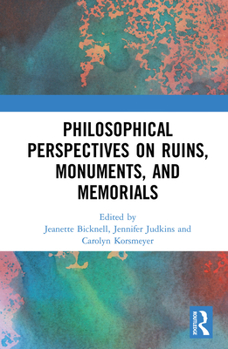Philosophical Perspectives on Ruins, Monuments, and Memorials
This collection of newly published essays examines our relationship to physical objects that invoke, commemorate, and honor the past. The recent destruction of cultural heritage in war and controversies over Civil War monuments in the US have foregrounded the importance of artifacts that embody history. The book invites us to ask: How do memorials convey their meanings? What is our responsibility for the preservation or reconstruction of historically significant structures? How should we respond when the public display of a monument divides a community? This anthology includes coverage of the destruction of Palmyra and the Bamiyan Buddhas, the loss of cultural heritage through war and natural disasters, the explosive controversies surrounding Confederate-era monuments, and the decay of industry in the U.S. Rust Belt. The authors consider issues of preservation and reconstruction, the nature of ruins, the aesthetic and ethical values of memorials, and the relationship of cultural memory to material artifacts that remain from the past. Written by a leading group of philosophers, art historians, and archeologists, the 23 chapters cover monuments and memorials from Dubai to Detroit, from the instant destruction of Hiroshima to the gradual sinking of Venice.
Related Subjects
Philosophy




